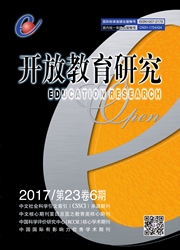

 中文摘要:
中文摘要:
2016年4月,美国麻省理工学院发布了"线上教育:高等教育改革的催化剂"研究报告,提出了关于一个新的职业学习工程师讨论。本文以该报告为依据对学习工程师做了初步的探讨。学习工程师作为一种新职业的出现标志着一个新的学习时代的来临:混合式学习成为学习的主流模式。未来主流学习模式具有相当的复杂性,需要精通学习科学、教育技术和学科知识的专业人士——学习工程师来参与设计课程和提供实施方案。学习工程师与课程设计师的区别大致上是,前者除了与后者一样需要要精通学习科学和教育技术外,还需要会运用工程学包括经济学和管理学于混合式学习体验的设计。大学开设培养学习工程师的硕士项目有助于培育新一代的有竞争力的学习工程师。此外,学科专家通过正规的培训也可以培养出大量的高水平的学习工程师。这些学科教师本来就是业务能手,由他们学习学习科学和教育技术成为第一批学习工程师,来倡导课程改革并帮助改造同事的课程。这些由学科专家构成的第一代中国学习工程师有望成为推动大学变革的主体。
 英文摘要:
英文摘要:
MIT released the final report"Online Education: A Catalyst for Higher Education Reforms"in this past April triggering a discussion on a new profession called learning engineer. This paper is devoted to introduce the related ideas and do a bit analysis on them. The advent of this new profession marks a new era of learning: blended learning is emerging into the main model of learning as opposed to the models of offline or online learning. As the designing and engineering of blended learning are increasingly complicated and require the application of the sciences of learning,education technology,and discipline-based education research knowledge,learning engineers who master the theories and skills in these fields are needed to help instructors design solutions and its implementation of blended learning. The main difference between a learning engineer and instructional designer is perhaps that the former needs more of engineering knowledge including the capability in applying economics and management in designing learning process as the latter. One way to train a generation of learning engineers is for universities to provide related master's program as Stanford does. An alternative way is to provide some discipline experts with formal training to become learning engineers. This alternative path could be more practical for China to nurse a first generation of learning engineers.
 同期刊论文项目
同期刊论文项目
 同项目期刊论文
同项目期刊论文
 期刊信息
期刊信息
